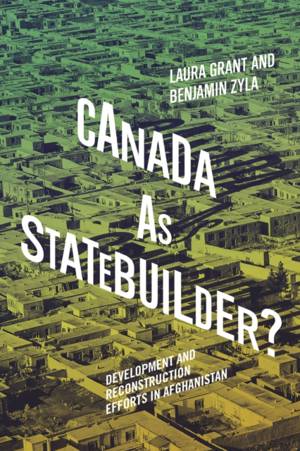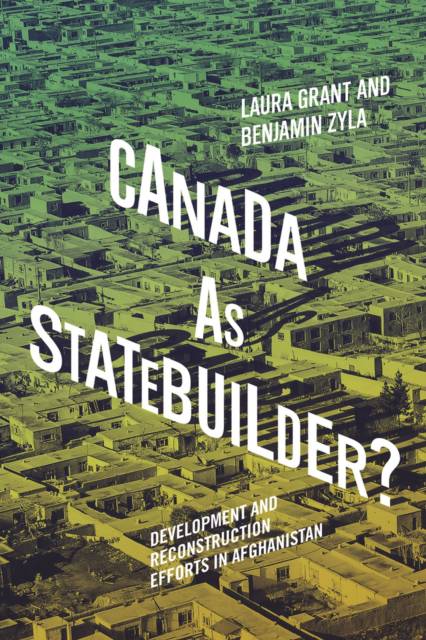
- Afhalen na 1 uur in een winkel met voorraad
- Gratis thuislevering in België vanaf € 30
- Ruim aanbod met 7 miljoen producten
- Afhalen na 1 uur in een winkel met voorraad
- Gratis thuislevering in België vanaf € 30
- Ruim aanbod met 7 miljoen producten
Zoeken
Canada as Statebuilder?
Development and Reconstruction Efforts in Afghanistan
Laura Grant, Benjamin Zyla
€ 43,45
+ 86 punten
Omschrijving
Canada's statebuilding efforts in Afghanistan are not well documented. After fourteen years of significant investments in humanitarian causes, there are still questions about the impact of these projects and whether they delivered as promised or fell short.In Canada as Statebuilder? Laura Grant and Benjamin Zyla analyze over one hundred and thirty Canadian-led development projects in Afghanistan to illustrate that Canada has a limited capacity to effectively run humanitarian efforts in unstable, insecure, or inaccessible environments. Canadian or Canadian-sponsored development projects were ambitious and highly productive in terms of outputs in the short term, especially in the areas of security, women and gender, health, and education. However, when their outcomes and overall impact are assessed, the authors argue, Canada's record is less impressive. Their analysis contributes to evidence-based discussions of one of Canada's most important foreign policy activities in recent years.Reflecting on Canada's engagement in Afghanistan, Canada as Statebuilder? asks whether Canadian peacekeeping efforts in the region were ultimately worth the economic and human resources invested.
Specificaties
Betrokkenen
- Auteur(s):
- Uitgeverij:
Inhoud
- Aantal bladzijden:
- 352
- Taal:
- Engels
- Reeks:
Eigenschappen
- Productcode (EAN):
- 9780228006114
- Verschijningsdatum:
- 18/08/2021
- Uitvoering:
- Paperback
- Formaat:
- Trade paperback (VS)
- Afmetingen:
- 152 mm x 229 mm

Alleen bij Standaard Boekhandel
+ 86 punten op je klantenkaart van Standaard Boekhandel
Beoordelingen
We publiceren alleen reviews die voldoen aan de voorwaarden voor reviews. Bekijk onze voorwaarden voor reviews.











